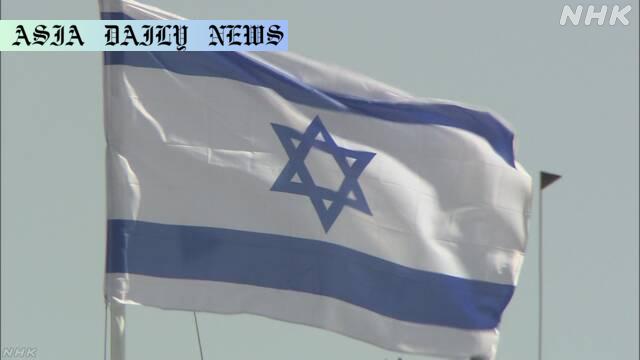Israeli forces launch a military operation in Jenin, prompting criticism and highlighting escalating tensions despite Gaza ceasefire.
Israeli forces have launched a new aggressive operation in Jenin.
UN officials and others express concerns over escalating violence.
Gaza ceasefire between Israel and Hamas remains fragile but holding.
Palestinian death toll continues to rise, with fears of broader implications.

Introduction: The Context of the Conflict
The Israeli military launched an intense military operation in the West Bank city of Jenin this week. This comes on the heels of a six-week ceasefire between Israel and Hamas in Gaza, following one of the most devastating conflicts in recent years. While the Gaza ceasefire remains tenuously in place, the West Bank saw a resurgence of violence, prompting global outcry and heightened tensions in the region.
The Nature of the Operations
Israeli Defense Minister Israel Katz described the ongoing military action as a “powerful operation” aimed at dismantling what he described as “terrorists and terrorist infrastructure.” The operation has already resulted in fatalities and injuries, deepening the crisis in the Palestinian territories. Jenin has been particularly contentious, often viewed as a flashpoint for resistance and Israeli interventions. The latest offensive in Jenin underscores a strategic escalation, even when the overall conflict in Gaza is subdued by a fragile ceasefire.
Concerns Voiced by the United Nations
The United Nations has expressed significant concern over the recent escalation. Francesca Albanese, the special rapporteur on the situation of human rights in the Palestinian Territory, remarked that ongoing military actions could escalate into what she described as genocide. Her stark warning on social media aims to prompt the international community to address the growing humanitarian crisis. Her comments underline how complex and dire the situation remains for both Palestinian civilians and the broader geopolitical stability of the Middle East.
Impact on Palestinian Civilians
The humanitarian toll of the conflict continues to mount. In Gaza alone, local health authorities report that the death toll has surpassed 47,000 since the conflict reignited in October 2023. Many bodies are still being retrieved from destroyed buildings, showcasing the scale of devastation caused by Israeli airstrikes. In Jenin, similar concerns are rising over civilian safety as the military operation unfolds. With unreliable access to food, water, and basic services, both Gaza and the West Bank remain zones of acute humanitarian distress.
State of the Gaza Ceasefire
The ongoing operation in the West Bank raises questions about the sustainability of the Gaza ceasefire negotiated between Israel and Hamas. Though observers note that large-scale fighting has largely paused, sporadic violence and loss of life continue. Critics warn that actions in the West Bank could spill over into Gaza, reigniting full-blown conflict. While both sides seem to honor the ceasefire terms, tensions remain high, creating a fragile and volatile peace.
Global Reactions to Escalating Violence
International reactions to the renewed violence have been swift. Many human rights organizations are demanding accountability for all parties involved, accusing Israel of violating international laws through its military actions. Some countries have offered muted condemnation, pointing to the need for de-escalation without taking a firm stance. Meanwhile, Israel maintains that its operations are justified, aimed at safeguarding its citizens and dismantling terror networks.
Implications for the Region
The renewed conflict in the West Bank is not just a local issue. It risks destabilizing the entire region, particularly given the precarious alliances and deeply entrenched grievances. Observers warn that if violence between Israel and the Palestinians continues to spiral, broader regional players may feel compelled to intervene. For the international community, the recent events pose a critical test of its willingness and ability to mediate in one of the world’s most protracted and contentious conflicts.
Conclusion: A Dire Need for Resolution
As tensions escalate, the world watches with a mixture of alarm and frustration. The cycle of violence in the Israeli-Palestinian conflict shows no signs of abating, instead deepening as actions in Jenin unfold. The ongoing humanitarian disaster and geopolitical instability demand immediate attention and robust action from international entities. Without meaningful intervention, the prospects of peace and justice seem increasingly out of reach.



Commentary
The Escalation Beyond Borders
The recent developments in Jenin are deeply unsettling. As the Israeli military continues its operations, one cannot ignore the potential ramifications of this escalation. The shadow of broader destabilization looms over the region, threatening fragile ceasefires and tenuous peace agreements. The global community must recognize that these actions go far beyond the immediate region and affect global stability.
The Humanitarian Toll Cannot Be Ignored
Even in the face of political and military justifications, the human cost of this conflict demands attention. With the death toll in Gaza already exceeding 47,000 and bodies still being recovered, humanity’s conscience is tested. Jenin’s situation only adds to the growing humanitarian crisis that continues to erode hope for future reconciliation. This is a time for compassion, not further division.
A Call for Collective Responsibility
It is incumbent on the global community to act decisively. We can no longer afford inaction or fragmented responses to such crises. Human rights organizations and governments alike must hold perpetrators accountable, advocate for the vulnerable, and work toward ensuring that cycles of violence do not spiral into irreversible catastrophe. The voices of victims on both sides should guide us toward a path of peace and justice, however difficult it may be.